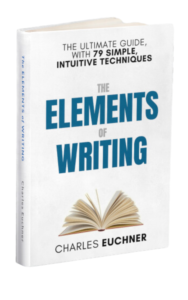Laura Zigman paid her dues before hitting the literary jackpot. Early in her career, she was a publicist for a number of major presses, including Times Books, Vintage Books, and Alfred A. Knopf. As she did her day job, she labored on her first novel, Animal Husbandry (1998), a comedy of errors about the mating habits of thirtysomethings. The book became the hit movie Someone Like You (2001).
Her 2006 novel Piece of Work tells the story of a young mother forced to return to her job as a publicist for a celebrity when her husband loses his job. Her (2007) explores the challenges of having a mate who’s still friends with an ex. Dating Big Bird (2012) takes on the struggles of a wannabe breeder who’s mate is a brooder.
Since then Zigman had ghosted books for Texas feminist and gubernatorial candidate Wendy Davis (Forgetting to Be Afraid) and pop icon Eddie Izzard (Believe Me). In an interview with The New York Times, Bill Gates freccomended the Izzard book. Laura, meet Bill …
 Charlie Euchner: You started, professionally, as a publicist and editor at some major publishing houses, including Times Books, Vintage Books, Knopf. What “tricks of the trade” did you learn, for storytelling and the mechanics of writing, during this period?
Charlie Euchner: You started, professionally, as a publicist and editor at some major publishing houses, including Times Books, Vintage Books, Knopf. What “tricks of the trade” did you learn, for storytelling and the mechanics of writing, during this period?
Laura Zigman: I learned a lot during that time. Mostly how much time and effort goes into writing a book — even one that doesn’t end up getting good reviews or selling well — and how committed and passionate you must, therefore, be to what you are writing. Publishing then, and especially now, can be a deeply heartbreaking process, and you just have to do it anyway. Writing, revising, metabolizing criticism from readers along the way and keeping the faith that your story will resonate with readers — those are essentials. As is the idea that even when surrounded by masters (which I was when I worked at Knopf), there’s always room for you, and for another story. There is always room for more.
CE: One of the greatest challenges for writers with a “day job” is getting the discipline to work on your project whenever you can. When did you start Animal Husbandry? How did you discipline yourself to write it? How developed was the idea when you started writing?
LZ: That’s always a huge challenge, isn’t it? — finding time to sit and write, and finding the time and space to think. I have always had trouble with both but somehow finding time to clear my head enough to think is that hardest part lately. Back then, because my job was so demanding, I never seemed able to do that writing-before-or-after-work thing — I was exhausted and my mind was too cluttered with all the noise and stress of the day — so I ended up writing once or twice a year, in spurts. I’d take my vacation time and go somewhere to write, or take a staycation in my apartment and write. Writing once or twice a year probably wasn’t the best way to write a novel since every time I sat down to it, so much time has passed that often times my thoughts had changed, too — but it was the only way I could do it so that’s how I did it.
People always want rules for writing and one of my rules is that there are no rules and you just have to make up your own as you go along to get it done. Years later, when I was writing my second novel, and my third, and then my fourth, I had quit my day job and was therefore more able to work on a regular schedule: in between my young son’s naps, or his preschool and elementary school schedule. Fear of not making mortgage payments was also a great motivator….
CE: How do you think about structuring a story — whether it’s a novel or a memoir or even just an essay? Do you start with Aristotle’s narrative arc — or is that something that’s automatic? John McPhee has a process where he writes down all his scenes on 3×5 cards and puts them on a wall and starts moving them around to create a structure. How do you arrange the pieces of your stories?
LZ: As someone who’s always written semi-autobiographical fiction, I often have a sense of the story’s structure because the story I’m telling has, in some way, already happened. It changes when I start to transform it into a new fictional story, of course, and that’s when I think roughly in terms of a three-act structure: What situation the character is in at the beginning of the story; what propels her forward and into more of an abyss; what ultimately allows her to find her way out of it.
That said, I haven’t written a novel since 2006 and the one I’m working on now — well, I have zero structure and no idea what is happening. It’s like writing completely blindly and I can’t say I’m enjoying it!
But I’m trying to have faith in what E.L. Doctorow once said: “Writing is like driving at night in the fog. You can only see as far as your headlights, but you can make the whole trip that way.” I’m trying to have faith that I can find my way all the way to the end without being able to see more than a word or a line or a paragraph ahead of me.
CE: When Animal Husbandry was adapted to the movie Something About You…, what did you learn about the craft and structure of storytelling? The hardest lesson for many writers is seeing their story turned into something else by screenwriters and directors. That’s life, right? I’m just wondering if seeing this adaptation taught you some storytelling secrets that you were able to use in subsequent writing projects.
LZ: Honestly, I didn’t care what they did to the film adaption of Animal Husbandry because I was so generously compensated! And because I believe that the two products — a novel and a film — are two very different things and that sometimes a film adaptation is better if it deviates somewhat from the novel it’s based on. I was very open to the fact that they were going to make changes to the third act (something about the third act caused them a great deal of trouble but I never quite understood what that was!) and other things along the way. That said, there were certain things I thought they did really well, and other changes they made that I didn’t like at all.
CE: In recent years you have ghosted memoirs for Wendy Davis (who gained national attention with her battle for abortion rights in Texas and later ran for governor) and Eddie Izzard (comedian, actor, writer, and trans activist). What approach do you take to embodying someone else’s voice? When do you realize you know them enough to tell their story in their words?
LZ: I got into ghostwriting almost by accident — I was trying to find a way to earn a living during a decade that had sucked the life out of me emotionally and physically (lots of sickness and death of loved ones and stress). After a few self-help books, I was given the opportunity to work with Wendy Davis, and then Eddie Izzard, and both times I was incredibly moved by who they were as people and what they’d accomplished despite very difficult childhoods. It felt like a privilege to help them tell their stories.
When someone hires you to do this, they put an enormous amount of trust in your ability to be sensitive to what they’ve been through and to accurately translate it onto the page. This takes hours and hours of asking questions and really listening to their answers, of finding the thread of their story, recurring images and symbols that you can carry all the way through. At some point, you start to absorb the cadences and rhythms of their language, as well as the details of their experience, but the challenge remains: to tell their story as if they themselves are telling it. Ghostwriting isn’t writing about someone.
It isn’t telling someone’s story the way you think it should be told. It’s telling someone’s story the way they want it told, the way they’d tell it if they could write it themselves.


